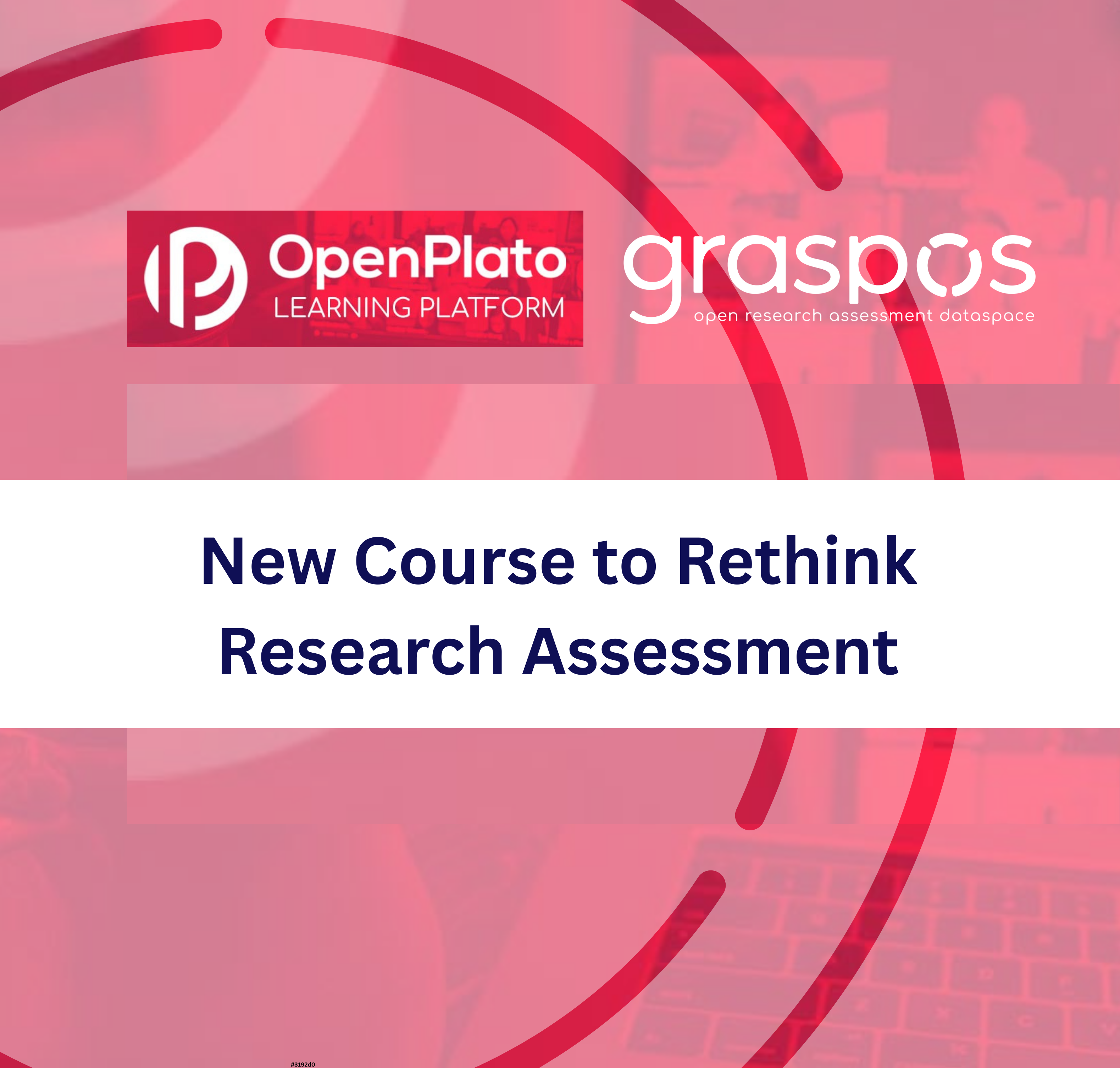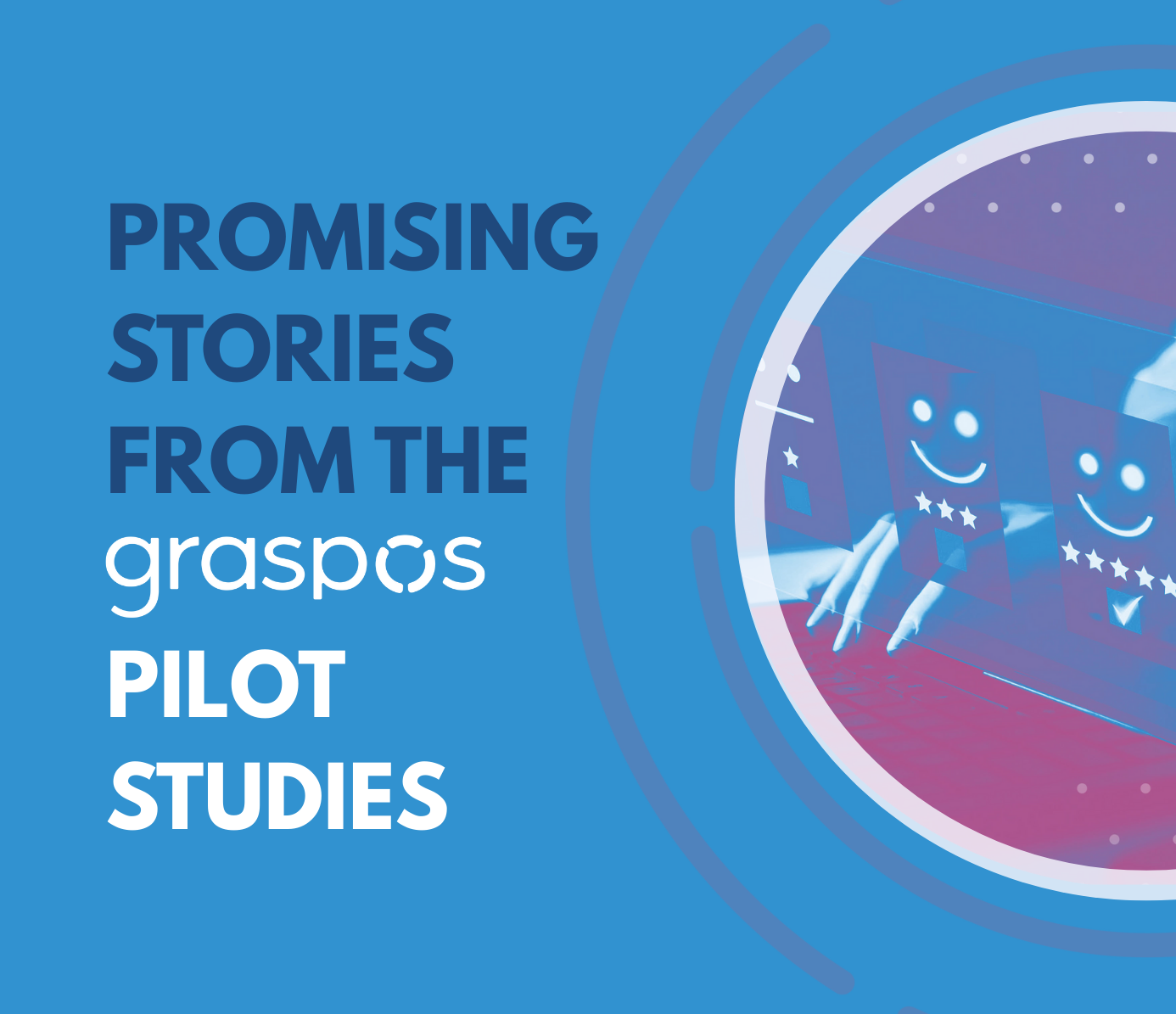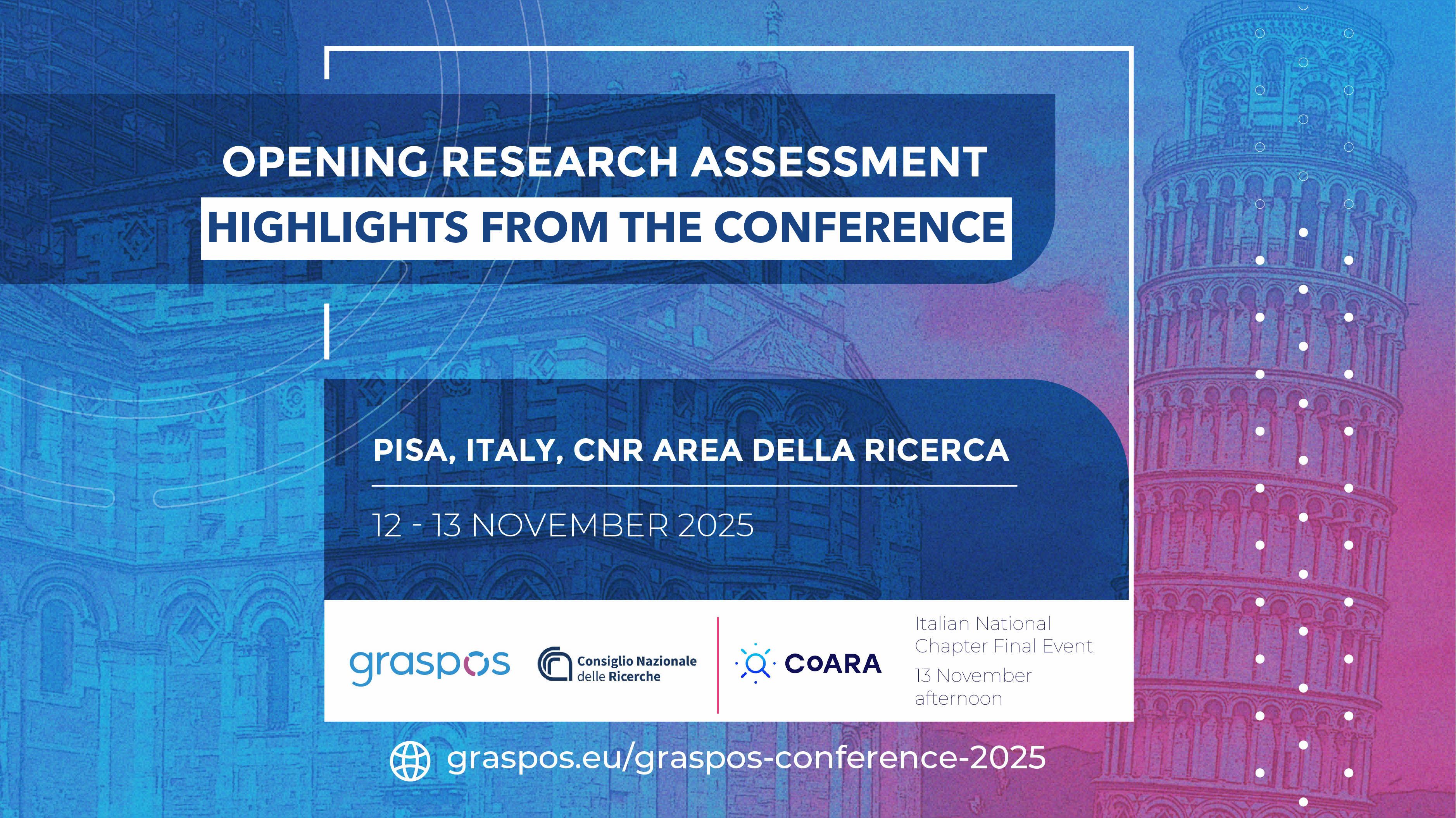Connecting the Dots: EOSC Projects enhancing scholarly data interoperability
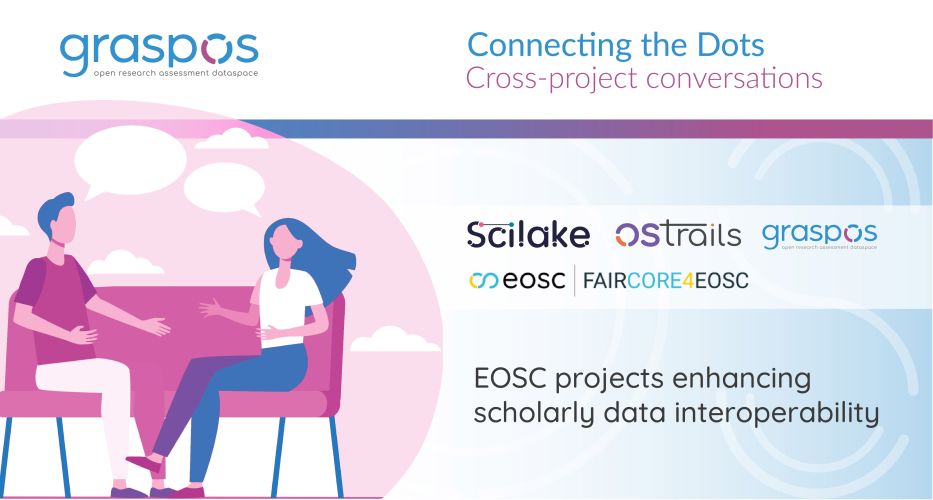
"CONNECTING THE DOTS: CROSS PROJECT CONVERSATIONS" IS ABOUT EXPLORING COLLABORATIVE EFFORTS ACROSS MULTIPLE PROJECTS TO ADVANCE THE FIELDS OF OPEN SCIENCE AND RESPONSIBLE RESEARCH ASSESSMENT. IN THIS SERIES OF DISCUSSIONS, WE WISH TO GIVE A VOICE TO REPRESENTATIVES OF PROJECTS AND INITIATIVES WITH WHOM WE COLLABORATE IN GRASPOS TO SHED LIGHT ON OUR WORK TOGETHER.
The first edition of Connecting the Dots is a discussion between four EOSC projects representatives about advancing scholarly data interoperability.
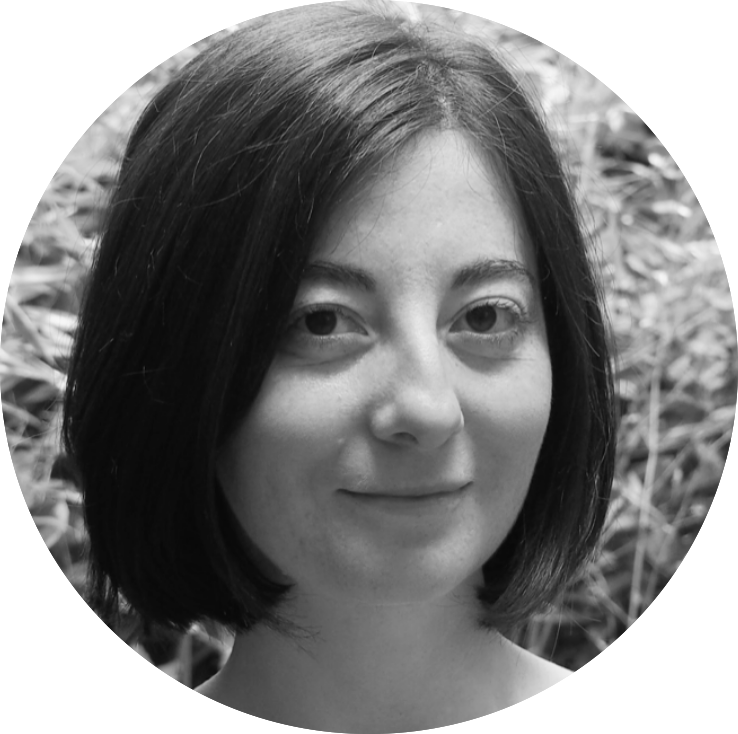 Stefania Amodeo - Scilake Stefania Amodeo - Scilake |
 Andrea Mannocci - GraspOS Andrea Mannocci - GraspOS |
 Matt Buys - FAIRCORE4EOSC Matt Buys - FAIRCORE4EOSC |
 Elli Papadopoulou - OSTrails Elli Papadopoulou - OSTrails |
In view of the joint workshop they will hold at the EOSC Symposium 2024, they share insights into some of the questions surrounding their work on the development and implementation of the Scientific Knowledge Graph - Interoperability Framework.
Can you tell us more about what we mean by interoperability when it comes to sharing data among infrastructures?
![]() Elli: Well, interoperability has different levels and all are needed depending on the context and what we want to achieve; it may refer to technical or semantic interoperability for example targeting metadata to ensure that systems can understand and use metadata from different sources or it may refer to data formats that enable systems that present technical differences with each other to exchange data. There is also legal interoperability to ensure data can be shared across different jurisdictions for example by using the same open licenses.
Elli: Well, interoperability has different levels and all are needed depending on the context and what we want to achieve; it may refer to technical or semantic interoperability for example targeting metadata to ensure that systems can understand and use metadata from different sources or it may refer to data formats that enable systems that present technical differences with each other to exchange data. There is also legal interoperability to ensure data can be shared across different jurisdictions for example by using the same open licenses.
![]() Matt: Interoperability refers to the use of common frameworks and standards that enable metadata to flow seamlessly between systems via open APIs, ensuring efficient and consistent data exchange.
Matt: Interoperability refers to the use of common frameworks and standards that enable metadata to flow seamlessly between systems via open APIs, ensuring efficient and consistent data exchange.
![]() Andrea: Exactly, for example, within the context of open research information, interoperability can be seen also as a mechanism to feed back the results of local enhancement and curation, and overcome the "silo effect" across different infrastructures and converge to more uniform corpora.
Andrea: Exactly, for example, within the context of open research information, interoperability can be seen also as a mechanism to feed back the results of local enhancement and curation, and overcome the "silo effect" across different infrastructures and converge to more uniform corpora.
![]() Stefania: In SciLake, using common specifications for sharing scientific knowledge enables the creation of an ecosystem, that we call “Scientific Lake”, where open data, tools, and services from various infrastructures can be effectively combined and utilized in favor of knowledge discovery and research reproducibility.
Stefania: In SciLake, using common specifications for sharing scientific knowledge enables the creation of an ecosystem, that we call “Scientific Lake”, where open data, tools, and services from various infrastructures can be effectively combined and utilized in favor of knowledge discovery and research reproducibility.
What is the Scientific Knowledge Graph - Interoperability Framework (SKG-IF)? and how is it being used or tested in EOSC projects like GraspOS, SciLake, OSTrails, and FAIRCORE4EOSC?
![]() Stefania: In SciLake, we aim to extend the SKG-IF model to account for domain-specific entities and facilitate the integration of value-added services for research communities. Our goal is to extend the model in a structured way so it can be registered as an official variation of the SKG-IF. We're actively involved in developing this extension through our members' engagement in the SKG-IF working group of the Research Data Alliance (RDA).
Stefania: In SciLake, we aim to extend the SKG-IF model to account for domain-specific entities and facilitate the integration of value-added services for research communities. Our goal is to extend the model in a structured way so it can be registered as an official variation of the SKG-IF. We're actively involved in developing this extension through our members' engagement in the SKG-IF working group of the Research Data Alliance (RDA).
![]() Andrea: Within the GraspOS project, we intend to use the SKG-IF as a means to exchange information in a uniform way across the federated data and service providers. Because of the peculiarities of the treated domain, which involves OS-aware responsible research assessment, we intend to extend the SKG-IF in order to tackle the specific needs of the project.
Andrea: Within the GraspOS project, we intend to use the SKG-IF as a means to exchange information in a uniform way across the federated data and service providers. Because of the peculiarities of the treated domain, which involves OS-aware responsible research assessment, we intend to extend the SKG-IF in order to tackle the specific needs of the project.
![]() Elli: In OSTrails we bring services of both national and thematic research ecosystems to co-design IFs for DMPs, SKGs and FAIR assessments. For the purpose of our project, an SKG is defined as any database/repository with information that matches the data model of SKGs; this information can be research products, processes, actors, agents. We are working together in order to expose these databases/repositories in an SKG-IF compliant manner and to enhance the SKG-IF with extensions according to rich metadata supporting research data creation and analysis, for example information about instrument and facility usage.
Elli: In OSTrails we bring services of both national and thematic research ecosystems to co-design IFs for DMPs, SKGs and FAIR assessments. For the purpose of our project, an SKG is defined as any database/repository with information that matches the data model of SKGs; this information can be research products, processes, actors, agents. We are working together in order to expose these databases/repositories in an SKG-IF compliant manner and to enhance the SKG-IF with extensions according to rich metadata supporting research data creation and analysis, for example information about instrument and facility usage.
![]() Matt: The SKG-IF establishes a standard designed to ensure interoperability and promote the reuse of metadata across the scholarly communication ecosystem. We are working to adopt this standard in EOSC projects to enhance data sharing and collaboration.
Matt: The SKG-IF establishes a standard designed to ensure interoperability and promote the reuse of metadata across the scholarly communication ecosystem. We are working to adopt this standard in EOSC projects to enhance data sharing and collaboration.
How does interoperability within the EOSC align with the broader vision of open science and collaborative research across Europe?
![]() Andrea: Interoperability is all about collaboration: reaching as much convergence as possible while maintaining diversity. It is a way to preserve local specificity of community data and services, and at the same time enable exchange of data to achieve multidisciplinary science.
Andrea: Interoperability is all about collaboration: reaching as much convergence as possible while maintaining diversity. It is a way to preserve local specificity of community data and services, and at the same time enable exchange of data to achieve multidisciplinary science.
![]() Stefania: I would add that interoperability allows for more efficient use of research resources by reducing duplication of efforts and enabling the integration of existing tools and services. This efficiency is key to advancing collaborative research on a European scale. Moreover, by enabling interoperable infrastructures, EOSC contributes to the long-term preservation and accessibility of research outcomes.
Stefania: I would add that interoperability allows for more efficient use of research resources by reducing duplication of efforts and enabling the integration of existing tools and services. This efficiency is key to advancing collaborative research on a European scale. Moreover, by enabling interoperable infrastructures, EOSC contributes to the long-term preservation and accessibility of research outcomes.
![]() Elli: One of the major challenges in research, admittedly, is the silos that researchers are faced with during the research process which prevents them from accessing and reusing data. This is a serious shortcoming that, among others, Open Science aims to eliminate and EOSC facilitates this effort by providing solutions to connect research infrastructures across national and institutional boundaries. That way researchers from different fields can access and build upon each other’s work, thereby strengthening collaborations, as my colleagues just highlighted as well.
Elli: One of the major challenges in research, admittedly, is the silos that researchers are faced with during the research process which prevents them from accessing and reusing data. This is a serious shortcoming that, among others, Open Science aims to eliminate and EOSC facilitates this effort by providing solutions to connect research infrastructures across national and institutional boundaries. That way researchers from different fields can access and build upon each other’s work, thereby strengthening collaborations, as my colleagues just highlighted as well.
![]() Matt: Interoperability across open infrastructures enables more effective reuse of community knowledge, reducing the burden on stakeholders. This alignment supports open science by creating richer metadata that better represents the entire spectrum of research activities, ultimately enhancing the scholarly record.
Matt: Interoperability across open infrastructures enables more effective reuse of community knowledge, reducing the burden on stakeholders. This alignment supports open science by creating richer metadata that better represents the entire spectrum of research activities, ultimately enhancing the scholarly record.
Are there specific outcomes you hope to achieve with your joint session aT the eosc symposium 2024?
![]() Matt: We aim to expand the dialogue within the EOSC community and gather valuable insights from participants that will guide the direction of our development efforts.
Matt: We aim to expand the dialogue within the EOSC community and gather valuable insights from participants that will guide the direction of our development efforts.
![]() Andrea: I believe the workshop can be important to bring new perspectives and factors into the discussions happening in relevant working groups and interest groups under the Research Data Alliance.
Andrea: I believe the workshop can be important to bring new perspectives and factors into the discussions happening in relevant working groups and interest groups under the Research Data Alliance.
![]() Stefania: I agree with my colleagues, it’s important to familiarise more members of the EOSC community with the SKG-IF, which is a robust international framework, and gather feedback on our development plans to reflect community needs. By bringing diverse stakeholders together, we aim to generate concrete ideas for advancing scholarly data interoperability in EOSC. The workshop also offers an excellent opportunity for our EOSC projects to collaborate and work on exploiting project results. I'm looking forward to a dynamic mix of learning, sharing, and planning that will enhance our collective efforts.
Stefania: I agree with my colleagues, it’s important to familiarise more members of the EOSC community with the SKG-IF, which is a robust international framework, and gather feedback on our development plans to reflect community needs. By bringing diverse stakeholders together, we aim to generate concrete ideas for advancing scholarly data interoperability in EOSC. The workshop also offers an excellent opportunity for our EOSC projects to collaborate and work on exploiting project results. I'm looking forward to a dynamic mix of learning, sharing, and planning that will enhance our collective efforts.
![]() Elli: This is a good opportunity to learn what each one of us is involved in and how we support the EOSC-IF, which goes beyond SKGs. For example, in OSTrails we are also looking at interoperability between DMP platforms and between FAIR assessment tools, but also interoperability across SKGs, DMPs, FAIR assessments in support of the planning, tracking and assessing phases of research. Opening this discussion with the EOSC community is important first to get input in line with its members' practices and the EOSC vision, and then to achieve further collaborations for alignment between our projects.
Elli: This is a good opportunity to learn what each one of us is involved in and how we support the EOSC-IF, which goes beyond SKGs. For example, in OSTrails we are also looking at interoperability between DMP platforms and between FAIR assessment tools, but also interoperability across SKGs, DMPs, FAIR assessments in support of the planning, tracking and assessing phases of research. Opening this discussion with the EOSC community is important first to get input in line with its members' practices and the EOSC vision, and then to achieve further collaborations for alignment between our projects.
Could you share some of the challenges you faced in your projects in the testing and implementation process?
![]() Matt: One challenge we've faced is the existence of numerous standards across our community. Developing new standards sometimes leads to further fragmentation and silos. To address this, we need to focus on continuous review and building on existing efforts through strong collaboration.
Matt: One challenge we've faced is the existence of numerous standards across our community. Developing new standards sometimes leads to further fragmentation and silos. To address this, we need to focus on continuous review and building on existing efforts through strong collaboration.
![]() Stefania: Moreover, integrating resources from our project into the EOSC ecosystem presents significant challenges. The EOSC architecture is quite complex, particularly after recent major changes. On a positive note, several EOSC events have been helpful, and this workshop is especially crucial for fostering collaboration and developing collective solutions.
Stefania: Moreover, integrating resources from our project into the EOSC ecosystem presents significant challenges. The EOSC architecture is quite complex, particularly after recent major changes. On a positive note, several EOSC events have been helpful, and this workshop is especially crucial for fostering collaboration and developing collective solutions.
What are the next steps in the development and implementation of the SKG-IF within EOSC, and who are the specific stakeholders in the broader research community who should be involved in the process?
![]() Andrea: we are now transitioning to full semantic interoperability for our core model by leveraging and reusing standard ontologies and dictionaries, such as SPAR ontologies. We are engaging with relevant stakeholders, such as diverse SKG providers, and the projects that are intended to build on top of the framework.
Andrea: we are now transitioning to full semantic interoperability for our core model by leveraging and reusing standard ontologies and dictionaries, such as SPAR ontologies. We are engaging with relevant stakeholders, such as diverse SKG providers, and the projects that are intended to build on top of the framework.
How do you envision the SKG-IF evolving to meet the future needs of research data interoperability and discovery?
![]() Elli: I would prefer to call it EOSC-IF in a few years time! That means to be a core component of the emerging EOSC nodes and to enhance SKGs with more information that EOSC covers in support of the whole research lifecycle and activities, e.g. for planning knowledge production.
Elli: I would prefer to call it EOSC-IF in a few years time! That means to be a core component of the emerging EOSC nodes and to enhance SKGs with more information that EOSC covers in support of the whole research lifecycle and activities, e.g. for planning knowledge production.
![]() Andrea: I hope the extension mechanism we are putting in place will spark the discussion around the SKG-IF and that it will be soon used to create multiple extensions of the core entities and relationships targeting different nuances and requirements that did not find an adequate representation in the first iteration of the framework.
Andrea: I hope the extension mechanism we are putting in place will spark the discussion around the SKG-IF and that it will be soon used to create multiple extensions of the core entities and relationships targeting different nuances and requirements that did not find an adequate representation in the first iteration of the framework.
Thank you very much Stefania, Elli, Andrea and Matt!
To learn more about the SKG-IF and scholarly data interoperability in EOSC, don't miss out on their joint Unconference session at the EOSC Symposium 2024: EOSC collaborative frontiers to achieve interoperability and enhance scholarly data, 22 October, 11:30-12:30
Watch the trailer of the session below.

